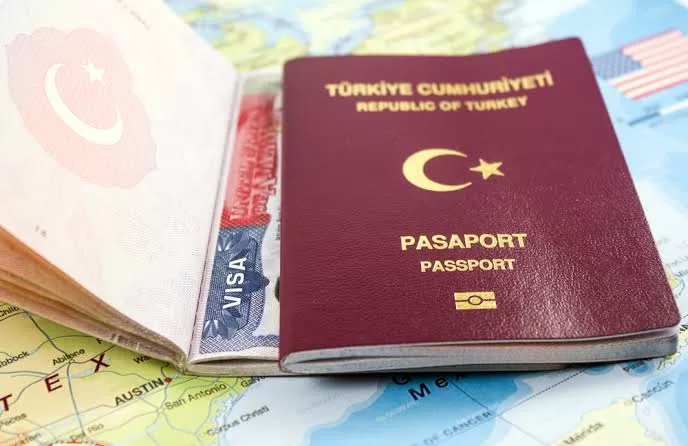Turkish Student Visa in Nigeria: Requirements & Application Process (2026)
If you’re a Nigerian student looking to study in Turkey, you’ll need to obtain a Turkish student visa. This visa allows you to stay in Turkey for the duration of your studies, and it’s a requirement for all international students. The process of obtaining a Turkish student visa can be daunting, but with the right information, it’s a manageable task.

To apply for a Turkish student visa in Nigeria, you’ll need to complete an application form and provide the necessary documents. These documents include a valid passport, a letter of acceptance from a Turkish university, proof of financial resources, and proof of accommodation. You’ll also need to provide a bank statement, travel insurance, and a letter of invitation if you’re being sponsored by someone. Additionally, you’ll need to schedule an appointment and attend a visa interview at the Turkish embassy or consulate in Abuja.
COST OF TURKISH STUDENT VISA IN NIGERIA (2026)
The cost of Turkish student visa fee for Nigerians is ₦75,000, which is non-refundable and payable at the time of visa application. The processing time for the visa can vary, but you may receive a response in as little as 15 days or as long as several months.
Once you arrive in Turkey, you will need to apply for a residence permit within 30 days. This permit allows you to stay in Turkey for the duration of your studies and can be renewed annually.
HOW TO APPLY FOR A TURKISH STUDENT VISA
If you are planning to study in Turkey, you will need to apply for a student visa. Here are the steps you need to follow to prepare for your visa application.
STEP 1: UNDERSTAND THE VISA REQUIREMENTS
Before you apply for a Turkish student visa, you need to understand the visa requirements. You must have a valid passport, a letter of acceptance from a Turkish educational institution, proof of financial resources to cover your tuition fees and living expenses, and proof of accommodation in Turkey. You will also need to provide a bank statement, a letter of sponsorship (if applicable), and travel insurance.
STEP 2: DOWNLOAD APPLICATION ONLINE
You can download an application form online by visiting the Turkish Embassy’s website in Abuja. Complete it in all capital letters, then print it.
STEP 3: GATHER REQUIRED DOCUMENTS
To apply for a Turkish student visa, you need to gather all the required documents. These include:
- Passport with at least six months validity
- Completed Turkish visa application form
- Two passport-size photographs
- Letter of acceptance from a Turkish educational institution
- Proof of financial resources (bank statement, scholarship letter, etc.)
- Proof of accommodation in Turkey (rent agreement, hotel reservation, etc.)
- Travel insurance
STEP 4: APPLY FOR A VISA APPOINTMENT
Once you have gathered all the required documents, you need to apply for a visa appointment. You can do this online or by visiting the Turkish embassy or consulate in Abuja. You will need to pay the visa fee and provide your travel dates. You may also be required to attend a visa interview.
The processing time for a Turkish student visa varies, but it usually takes between 3 and 5 working days. Once your visa is approved, you can travel to Turkey and apply for a residence permit within 30 days of your arrival.
STEP 5: ATTEND THE VISA INTERVIEW
After completing the visa application form, you will need to attend a visa interview. You can book an appointment online and select a convenient date and time. During the interview, you will be asked questions about your study plans, financial resources, and other relevant details. Make sure to bring all the required documents, such as your passport, letter of acceptance from a Turkish university, bank statements, and flight tickets.
STEP 6: PAYING THE VISA FEE
Once your visa application is approved, you will need to pay the visa fee. The fee for a Turkish student visa is $100, which is approximately 75,000. You can pay the fee at the visa application center in cash or by card.
WHAT TO DO AFTER RECEIVING YOUR TURKISH STUDENT VISA
Congratulations! You’ve successfully obtained your Turkish student visa. Now that you have your visa, there are a few things you need to do before you can start your studies in Turkey.
ARRANGING ACCOMMODATION AND TRAVEL
The first thing you need to do is to arrange your accommodation and travel. You can either choose to stay in a student dormitory or rent an apartment. It’s important to start looking for accommodation as soon as possible to avoid any last-minute hassles.
When it comes to travel, you need to book your flight tickets and plan your journey. Make sure you arrive in Turkey at least a few days before the start of your classes to settle down and get familiar with the surroundings.
OBTAINING A RESIDENCE PERMIT
As a student in Turkey, you need to obtain a residence permit within the first month of your arrival. You can apply for a residence permit at the local police station or online. You will need to provide some documents such as your passport, student visa, and proof of accommodation.
It’s important to note that your residence permit must be valid throughout your stay in Turkey. Therefore, make sure you renew it before it expires.
ENROLLING IN YOUR INSTITUTION
Once you’ve settled down and obtained your residence permit, it’s time to enroll in your institution. You need to visit the international student office of your university or college and complete the enrollment process. During the enrollment process, you will be required to provide some documents such as your passport, student visa, and academic certificates. You will also need to pay your tuition fees and obtain your student ID card.
DURATION AND RENEWAL OF TURKISH STUDENT VISA
Once your Turkish student visa is granted, it will be valid for the duration of your study program. It’s important to note that the student visa does not automatically grant you permanent residency in Turkey. If you wish to extend your stay beyond the visa’s expiration date, you will need to apply for a renewal before it expires. The renewal process usually involves providing updated documentation and proof of continued enrollment in an educational institution in Turkey.
WHAT YOU SHOULD DO IF YOUR TURKISH STUDENT VISA IS DENIED
If your application is turned down due to its incompleteness, you should submit another one after fixing any mistakes. After being rejected, you have 24 hours to apply for a new visa; assuming all of your information is accurate, you might get your visa in three days.
The Turkish Embassy or Consulate in your nation should be contacted if you feel your application was wrongfully denied. To avoid having to wait weeks or even months for an appointment, apply for a visa in advance before making travel arrangements.
When you visit the Embassy or consulate, bring whatever paperwork you need to show that your application should be accepted.
If you are unable to attend the consulate in person, write to them and provide any proof that may support your claim that your denial was unreasonable.
BENEFITS OF STUDYING IN TURKEY
Studying in Turkey offers numerous advantages for Nigerian students:
- Quality education system: Turkish universities are known for their high academic standards and quality education, providing students with a valuable learning experience.
- Cultural diversity: Turkey is a vibrant and multicultural country, offering Nigerian students the opportunity to immerse themselves in a diverse cultural environment and expand their horizons.
- Affordable tuition fees and living costs: Compared to many other study abroad destinations, Turkey offers affordable tuition fees and a relatively lower cost of living, making it an attractive option for Nigerian students.
CHALLENGES AND TIPS FOR NIGERIAN STUDENTS
While pursuing education in Turkey is rewarding, Nigerian students may encounter some challenges. Here are a few tips to help you overcome them:
- Language barrier: Turkish is the primary language of instruction in most universities. Consider taking Turkish language courses before or during your studies to enhance your communication skills.
- Adapting to a new culture: Embrace the opportunity to experience a new culture. Engage with local communities, participate in cultural events, and join student organizations to make the most of your time in Turkey.
- Finding accommodation and part-time jobs: Start looking for accommodation early and explore options such as university dormitories or shared apartments. Additionally, familiarize yourself with the rules and regulations regarding part-time jobs for international students.
CONCLUSION
Obtaining a Turkish student visa is a crucial step for Nigerian students planning to pursue higher education in Turkey. By carefully following the application process and fulfilling the requirements, you can embark on an enriching academic journey in a vibrant and culturally diverse country. Studying in Turkey not only offers a quality education but also provides an opportunity to broaden your horizons and experience a new culture.
